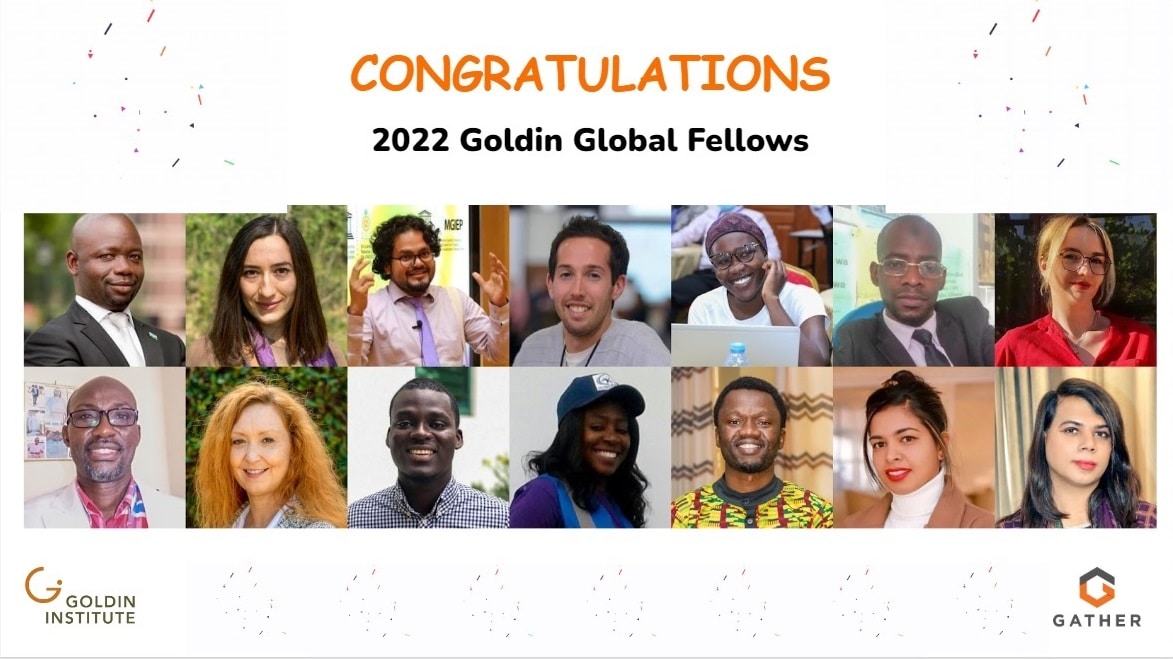Our 2022 Global Fellow graduates are stronger together
By Yusuph Masanja, Co-Facilitator of the Global Alumni Network

Since the inaugural cohort of the Goldin Global Fellows in 2018, the Goldin Institute has evolved the GATHER curriculum to remove barriers to access for grassroots leaders and to augment the pedagogy to work for the realities of our Fellows across the globe. One such development was the ability for Fellows to access the curriculum not only on iPads but on any internet-enabled device or smart phone which is most convenient for them. This change removes a significant barrier for Fellows who reside in remote places and lack reliable access to electricity, wifi and the latest gadget or repair services.
As a Facilitator of the program, our intentionality in removing barriers is why I am such an advocate of the GATHER approach. It is how our network of Alumni has grown to 150 Fellows from diverse backgrounds, including those leaders who are often left out of conferences or trainings, who now hail from over 40 countries. And we are confidently making space for more grassroots leaders to join us. The Community of Practice that Fellows continue to build, one cohort at a time, is proof that building change from the assets we have is a path to meaningful and inclusive progress.
This year we saw our third cohort of Fellows embark on the Global Fellows Program. The 2022 Goldin Global Fellows are 14 bold and wise grassroots leaders from across the globe, including Cote d'Ivoire, North Macedonia, the USA, Ghana, Nigeria, Zimbabwe, Nepal, Pakistan, Malawi, Bangladesh, Albania, Sierra Leone, and Kenya. Amidst our diversity, we are united by the desire to learn, reflect and implement proven ideas for community-driven social change in our respective countries.
At the graduation ceremony on 4th November, the 2022 Fellows demonstrated their achievements and shared their aspirations. The ceremony began with a message to all Fellows from the Founder and Board Chair of the institute, Diane Goldin who warmly welcomed the new Fellows to the network:
“I could not be more honored to have the opportunity to know so many talented leaders and know the innovative results. My congratulations for all your work in achieving your goals and for being a part of our global family. You are appreciated and loved.” - Diane Goldin
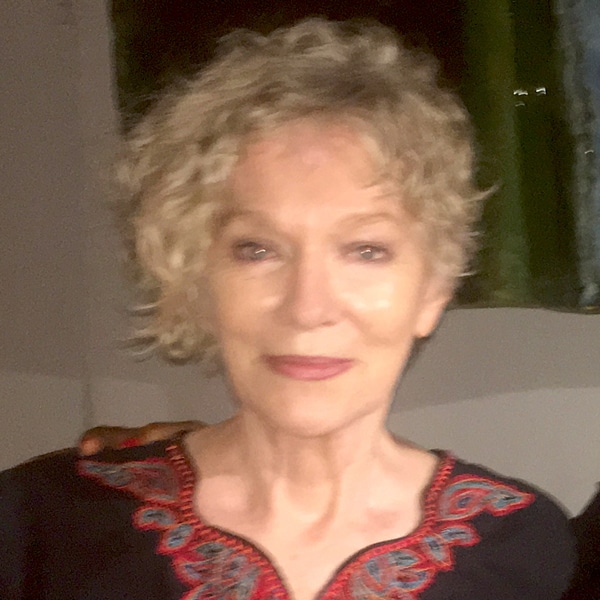
At the graduation, Fellows shared moving testimonies of how their five months through the program transformed their worldviews, their grassroots activism, and brought new friends into their lives. As a Facilitator, this feedback is so rewarding, which keeps me motivated to expand the opportunity for even more community leaders around the world. Here are a few quotes from some Fellows captured from the graduation ceremony:
"The process of assets mapping where we identified people, institutions, connections -- and all things which give us life in our communities -- helped us to see the abundance of resources that can be tapped to make progress." - Abdul Rahman Kowa from Sierra Leone.
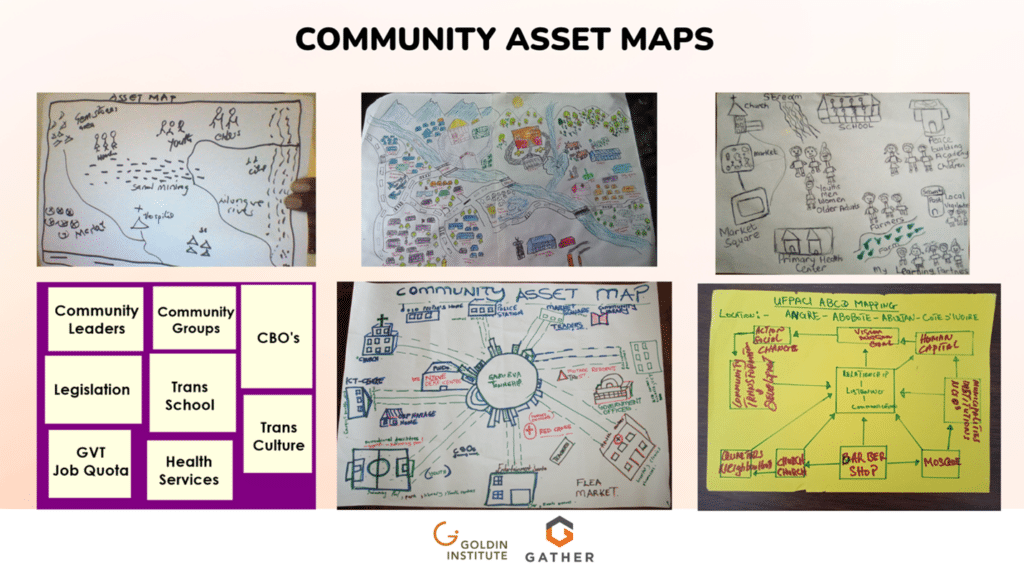
Florence Adhiambo from Kenya shared a great insight from what she learned during the program:
"The GATHER curriculum reminded me that leadership is not a position, but rather a commitment to building partnerships and trust with our fellow community members where everyone is aware that everyone has something to contribute."
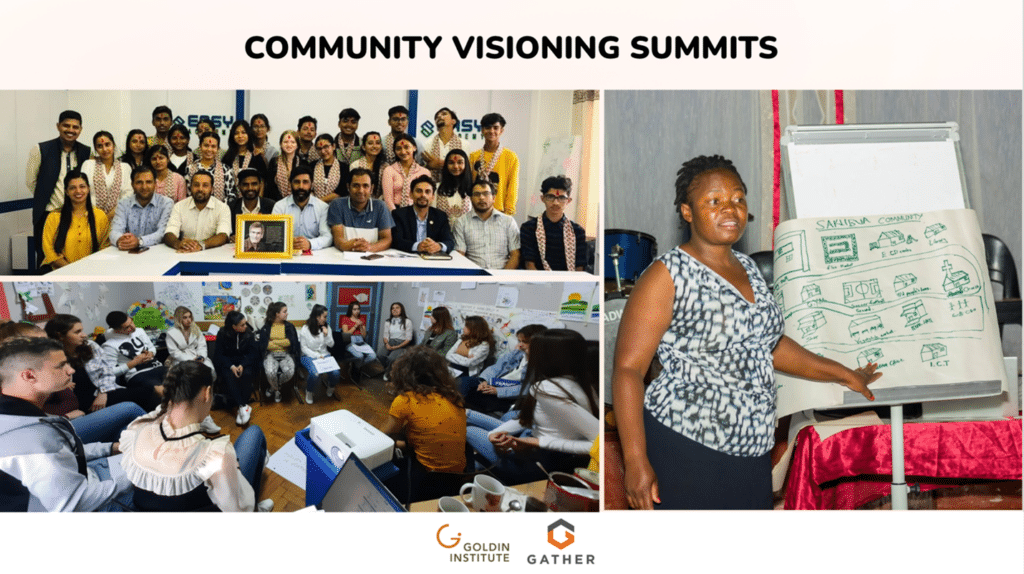
A key element of the curriculum on the GATHER Platform is the hosting of Community Visioning Summits; these allowed Fellows to share assets they have identified with broader community members, and to use appreciative inquiry to discover aspirations and shared priorities with the community. Central to the GATHER curriculum is the capacity for grassroots leaders to involve the voices of those most often left out in regular community processes and actively remove barriers to full participation.
In addition to sharing what they learned, Fellows shared key aspirations and next steps for how to collaborate with neighbors and global peers. In one example, Global Fellow Klementina Dobrevska from North Macedonia shared her next steps for addressing the issue of bullying and violence in schools:
Students who have disabilities are faced with a lot of pressure and bullying. Now we are working to promote children’s rights. So far, we have 500 students on board and in our second Community Visioning Summit we managed to leverage a new tool for youth participation which will allow us to get students’ opinions across the country.
As a final step in the Program, all Fellows partnered with their community members to develop a vision and outline next steps they will take to bring these aspirations to their respective countries. We will be sharing Fellows progress with you in the second edition of this article so that you can better understand and support their efforts. We believe everyone can make a difference no matter how small!
In addition to Fellows sharing their wisdom during the ceremony, they also performed poems, and songs, and led a candlelight ceremony. You can watch the entire recording of the graduation ceremony here.
Before closing, our Executive Director Travis Rejman, virtually presented the Graduation Certificates to each Fellow recognizing their successful completion of the GATHER curriculum and invited them to the Global Alumni Network. Staff members shared their messages of congratulations for the Fellows and Travis Rejman closed the ceremony with the following remarks:
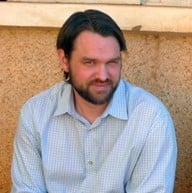
“It’s been an honor to learn together with you over these past 20 weeks. Over the last 20 years, we have been inspiring, connecting, and equipping grassroots leaders around the world so that they can learn from each other and work together to tackle really tough issues that all of our communities are facing. This celebration is a perfect example of what this work looks like in the real world. Thank you all for your dedication and hard work. We are very proud to stand with you and celebrate your accomplishments. We are very excited to welcome you into our global family.” — Travis Rejman.
Flooding in Nigeria Impacts Millions
by Oluchi Achi Uzodimma, 2022 Goldin Global Fellow, Nigeria
Nigeria experienced its worst flooding in a decade this October, resulting in the deaths of at least 600 people. More than 2 million people and 200,000 homes have been affected by the severe floods, according to Nigeria’s humanitarian affairs ministry.
Communities along the River Niger and River Benue have been particularly impacted as water levels rose up to 13 metres, with homes and public buildings inundated. The floods have had wide-ranging effects –from food insecurity to fuel shortages.
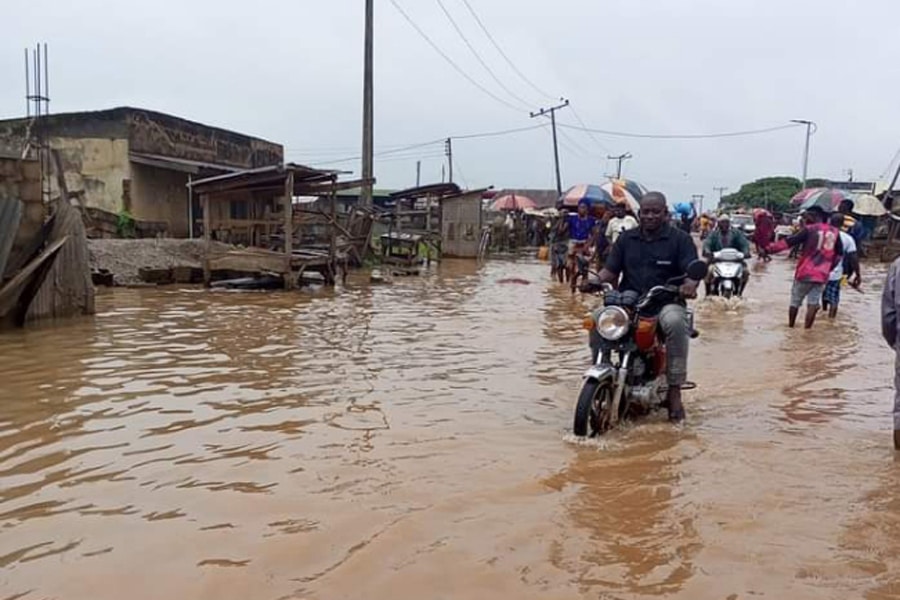
Flood menace in Nigeria has become a normal and re-occurring phenomenon which can have devastating impacts on human livelihoods and infrastructural development. Causes of this problem are both local and global; local factors include population density , poor governance, poor drainage facilities and decaying infrastructures and lack of proper environmental planning and management strategies.
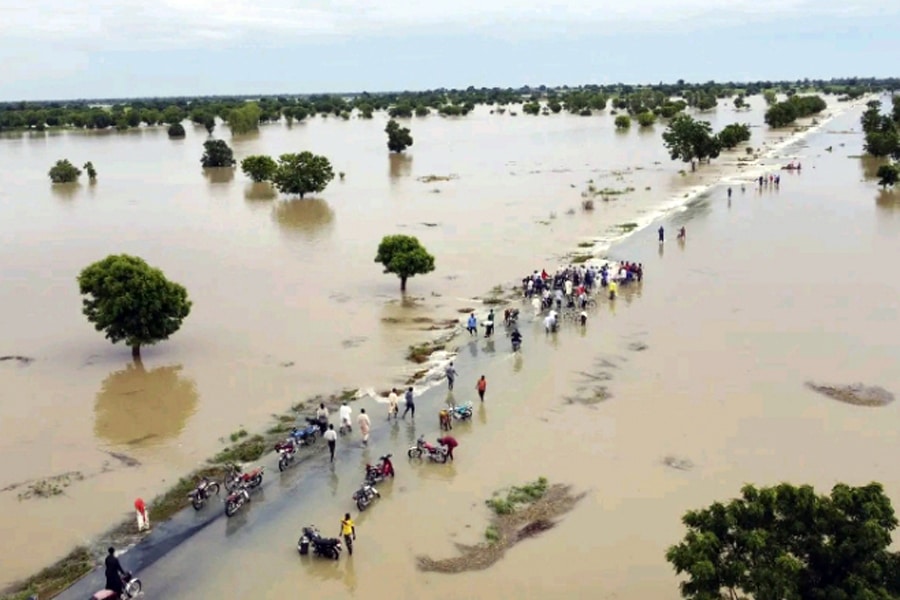
On a global scale, climate change and environmental catastrophes, as well as unsustainable human and technological endeavors, have accelerated and amplified the rate of such disasters. The consequences of which see the spread of diseases, loss of thousands of lives from various parts of the country, and properties and homes destroyed.
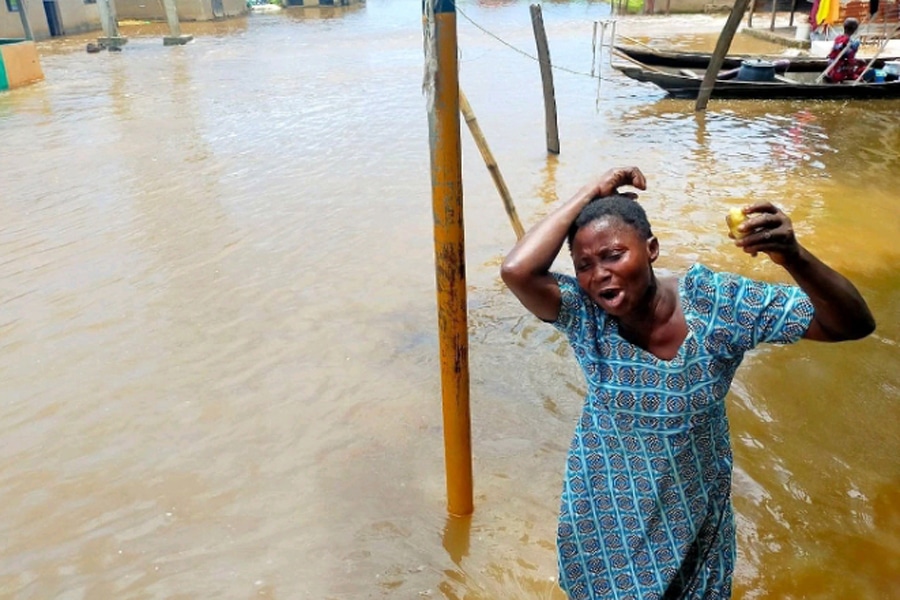
The floods wrecked and are still wrecking a Farmland which is estimated at $20 million; what is easily Nigeria’s largest private farming enterprise. We are not even talking about the damage to small-farm holders whose livelihoods have also been washed away. Individuals traveling from Lagos to Abuja, a journey which ordinarily takes 10 hours (even at the worst of time) took several days with many people becoming stuck on the road in various ways.
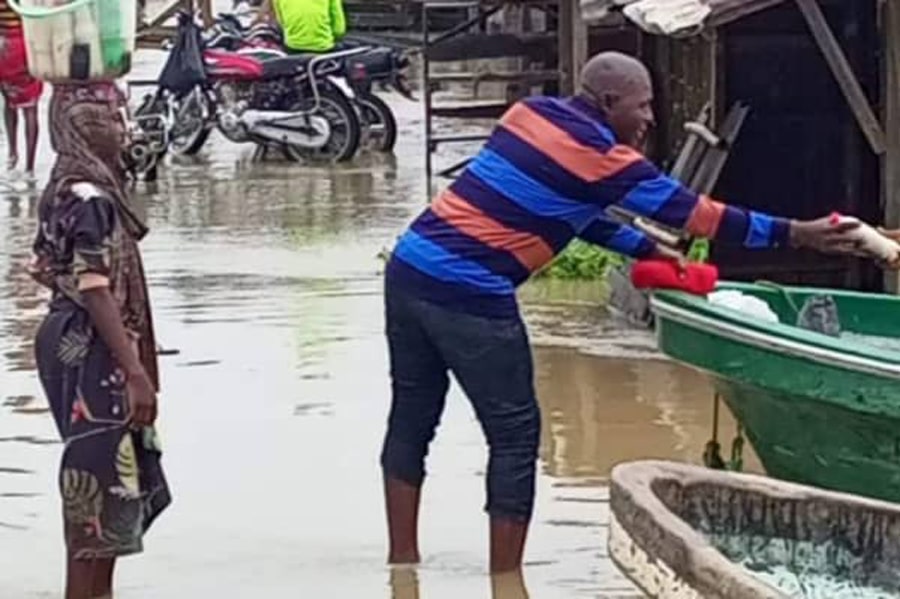
That was only one of the many tales of misery from the current floods. My friends and relatives were also affected by this disaster. My biggest concern is for the children I work with. Their community was equally affected. Some of them lost their parents in the process. The flood separated families. It was like the biblical red sea that got separated into two. Crossing over was a challenge leaving them with no option than to remain where they are.
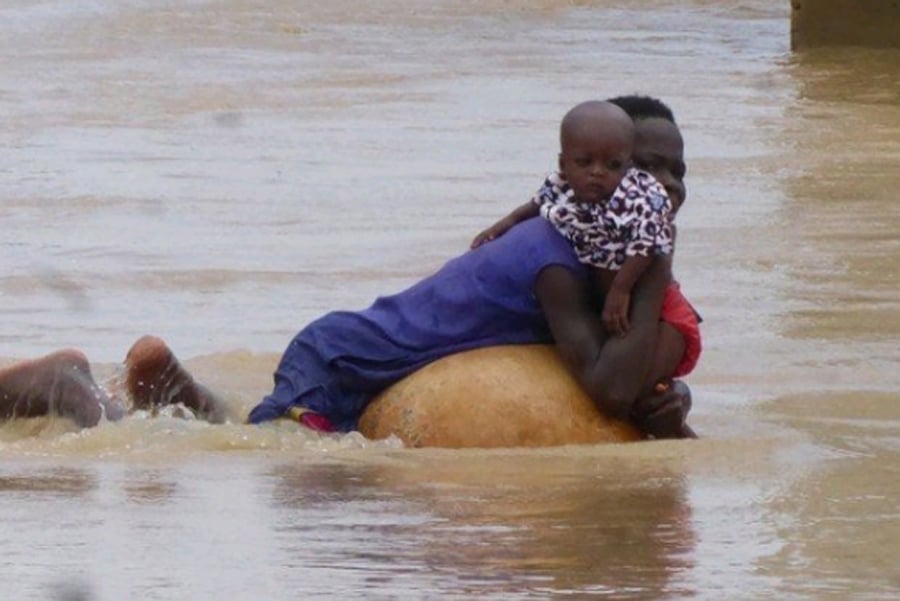
The floods have severely impacted these children's lives; they are unable to stay in school, their parents have lost their means of livelihood, and their community has no access to good food and other basic necessities.
I regard this as an environmental and emotional trauma.
My team and I have done the little we can to help them out. These children need shelter, clothing, food and education. I wish that the flood will come to an end and normalcy begins.
